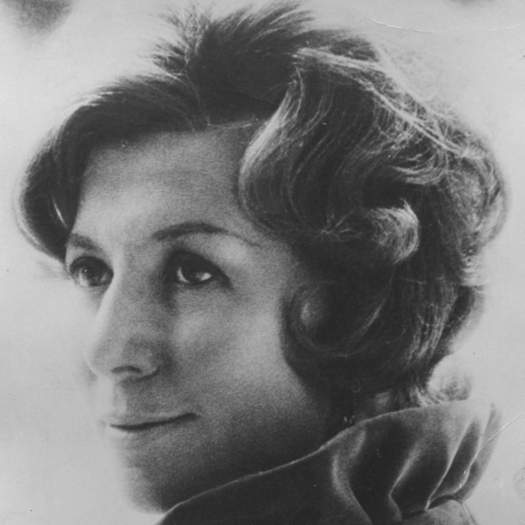 SPONSORED: Think of Something Beautiful - Malcolm Miller pays tribute to contralto Sybil Michelow (1925-2013).
SPONSORED: Think of Something Beautiful - Malcolm Miller pays tribute to contralto Sybil Michelow (1925-2013).
All sponsored features >>
A Different 'Nutcracker'
Giuliano Peparini's staging of Tchaikovsky ballet, experienced by GIUSEPPE PENNISI and his grandson
Peter Ilyich Tchaikovsky's Nutcracker is a traditional ballet for the festive period of Christmas and End/Beginning of the Year. It is on stage all over the world at this time of the year. Adults and children like it. In Rome, despite the restrictions caused by the corona virus pandemic, two productions are on stage. I chose that of the Teatro dell'Opera; I went to the 24 December 2021 matinée performance with my five-and-a-half year-old grandson for the first time in a theatre 'for adults'. We were both in box 10 of the right-hand first tier. We enjoyed together a show different from the usual editions of this last masterpiece by Tchaikovsky, composed almost in parallel to the sixth symphony and conceived to be represented together with the one-act opera Iolanta.
Usually, The Nutcracker is staged by adapting the original version by Ivanov and Petipa, with which debuted on 18 December 1892 at the Mariinsky Theater in St Petersburg. It is a ballet based on the Histoire d'un casse-noisette by Alexandre Dumas (1845), a sweetened version of Casse-Noisette et le Roi des rats by E T A Hoffmann (1816). Thus, a Christmas divertissement for the Russian aristocracy and upper middle class.
The production presented this season at Teatro dell'Opera is, instead, a revival of that curated by Giuliano Peparini; it had a successful debuted in 2015. The setting is in the world of British high finance at the beginning of the twentieth century in a London characterized by strong social differences between those who are 'upstairs' and those who are, instead, 'downstairs' - a world like that narrated in Dickens' novels. Keeping the score unchanged, the libretto is modified and the ballet becomes a Bildungsroman, that is, a story of growth and maturation, in which the protagonist gradually but progressively becomes aware of social inequalities. Perhaps a reading in line with the feelings of Tchaikovsky, who had been commissioned a Christmas divertissement but who was composing the last of his symphonies and was in the midst of the existential crisis that, shortly thereafter, led him to suicide. Undoubtedly, an interpretation with greater contact with the disturbing story of E T A Hoffmann than with a Christmas/New Year tale.
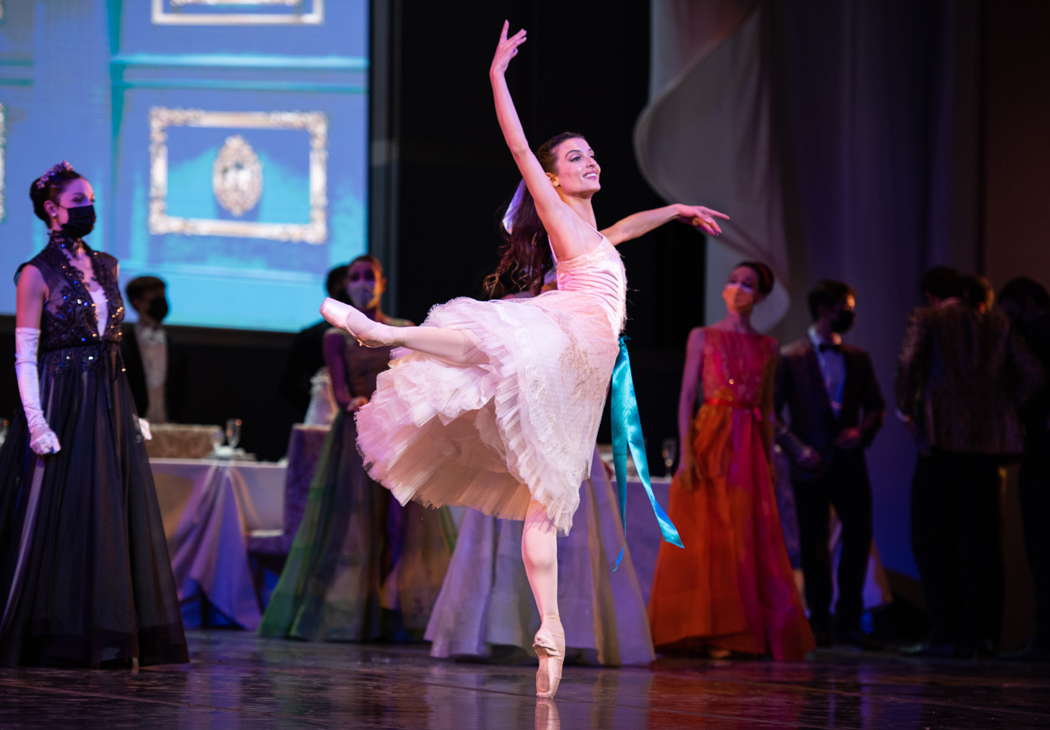
Susanna Salvi as Marie in Giuliano Peparini's Nutcracker. Photo © 2021 Fabrizio Sansoni
Peparini is one of the most prolific and eclectic directors on the international scene. Already at the age of sixteen, he was dancing at the American Ballet School in New York. His experience was, subsequently, in France, Marseille and Paris, and in Russia, in St Petersburg. It was not only about classical ballet, but also about modern dance and the largest water show in the world, The House of Dancing Water, which has now become a permanent tourist attraction in Macau. And again director of Romeo and Juliet – Love and Change the World, a modern work by David Zard that debuted in 2013 at the Arena di Verona. In Italy, he is quite active as a director of television cultural programs. With such a resume, we could not expect an elegant and mannered Nutcracker, devoid of social messages and designed only to cheer up the Christmas and New Year holidays.
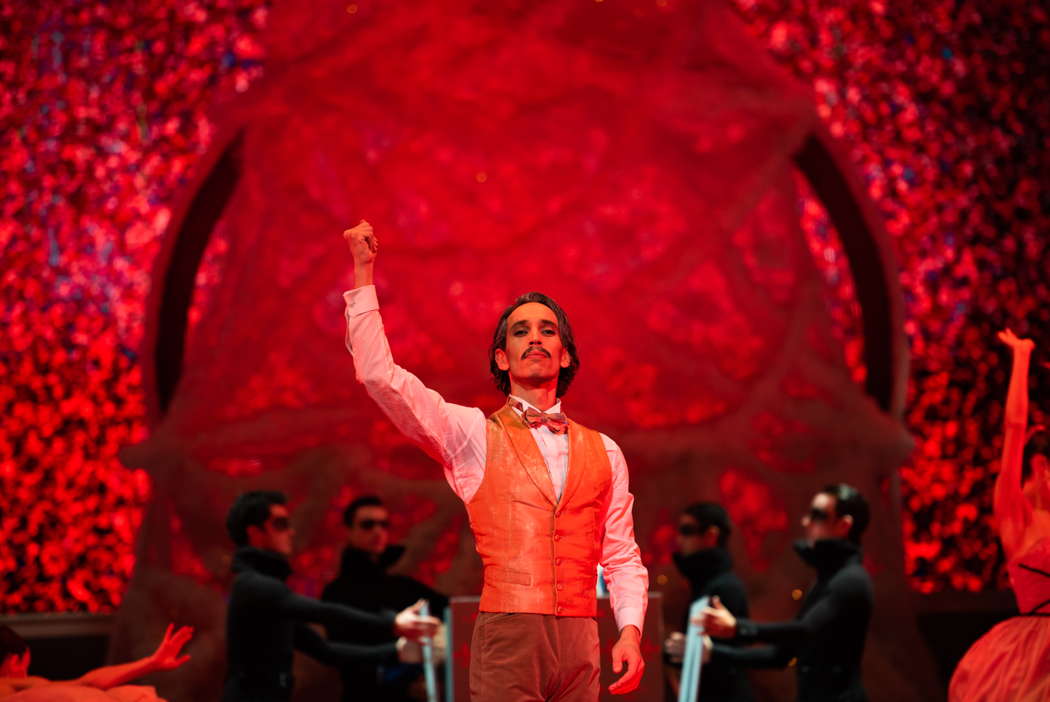
Claudio Cocino as Uncle Drosselmeyer in Giuliano Peparini's Nutcracker. Photo © 2021 Fabrizio Sansoni
'Having grown up between codes and schemes', Peparini says in an interview, 'I return today to classical ballet with a new awareness and vision. My Nutcracker is a Christmas tree with many colours, where the essential thing is to organize this diversity, a stylistic fusion of very different dances. When I create, I use a classical or contemporary language, street or musical, a melting pot of movement that represents me at that moment. In Nutcracker there is a story, but it is the story that comes from my vision of society, from my sensitivity: for example, there will not be the canonical transformation of the puppet nutcracker into a prince, but a more subtle, contemporary transformation, the one that invests us every day, walking on the street. Marie, the protagonist, immediately meets her prince, but does not understand him. She discovers him slowly, through falling in love. Still, the King of rats and his army are the bully boys, who embody that dark element that grips the adolescence of many of our boys.'
The Nutcracker staged by Giuliano Peparini is a contemporary re-interpretation with a strong theatrical cut. The reading of the musical score is entrusted to conductor Nir Kabaretti, a frequent guest for Teatro dell'Opera di Roma's ballet performances. Kabaretti and the orchestra have made very well the tremors and languors underlying what may seem like a simple Christmas fairy tale for children. Very beautiful sets by Lucia D'Angelo and Cristina Querzola, costumes by Frédéric Olivier, videographics by Gilles Papain and lighting by Jean-Michel Désiré, It was a real enchantment also for the many children in the theatre.
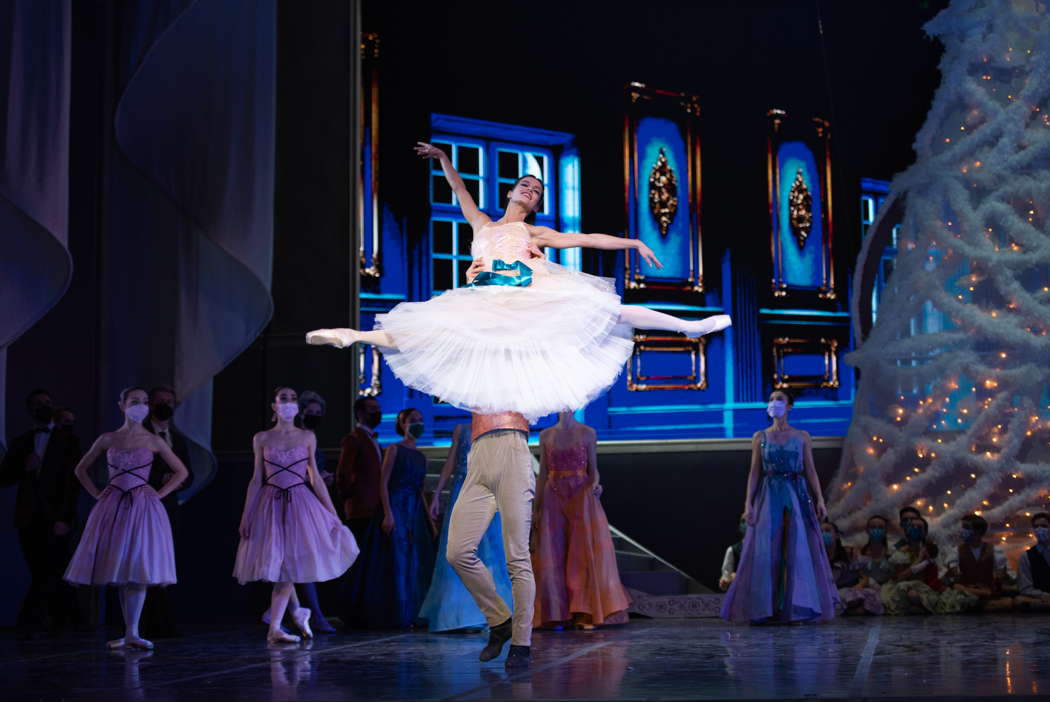
Susanna Salvi as Marie in Giuliano Peparini's Nutcracker. Photo © 2021 Fabrizio Sansoni
Ten performances are scheduled until the beginning of January. Therefore, various casts alternate - especially in the main roles. On 24 December the two protagonists were Susanna Salvi and Michele Satriano, who were splendid, especially in the final pas de deux (largely based on the original choreography of Ivanov and Petipa).
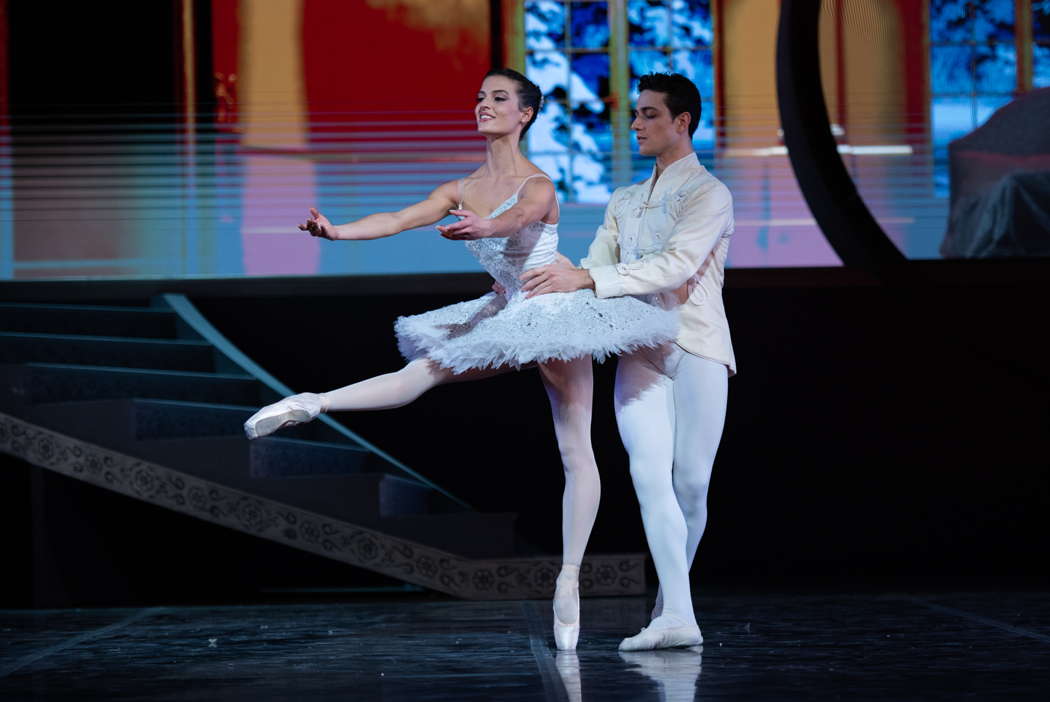
Susanna Salvi and Michele Satriano in Giuliano Peparini's Nutcracker. Photo © 2021 Fabrizio Sansoni
Claudio Cocino in the role of Uncle Drosselmeyer was excellent, and Antonello Mastrangela in that of bad boy was very good. The corps de ballet of the Teatro dell'Opera engaged in numerous parts at a great level. There was lots of applause from an audience of adults and children.
Copyright © 28 December 2021
Giuseppe Pennisi,
Rome, Italy




